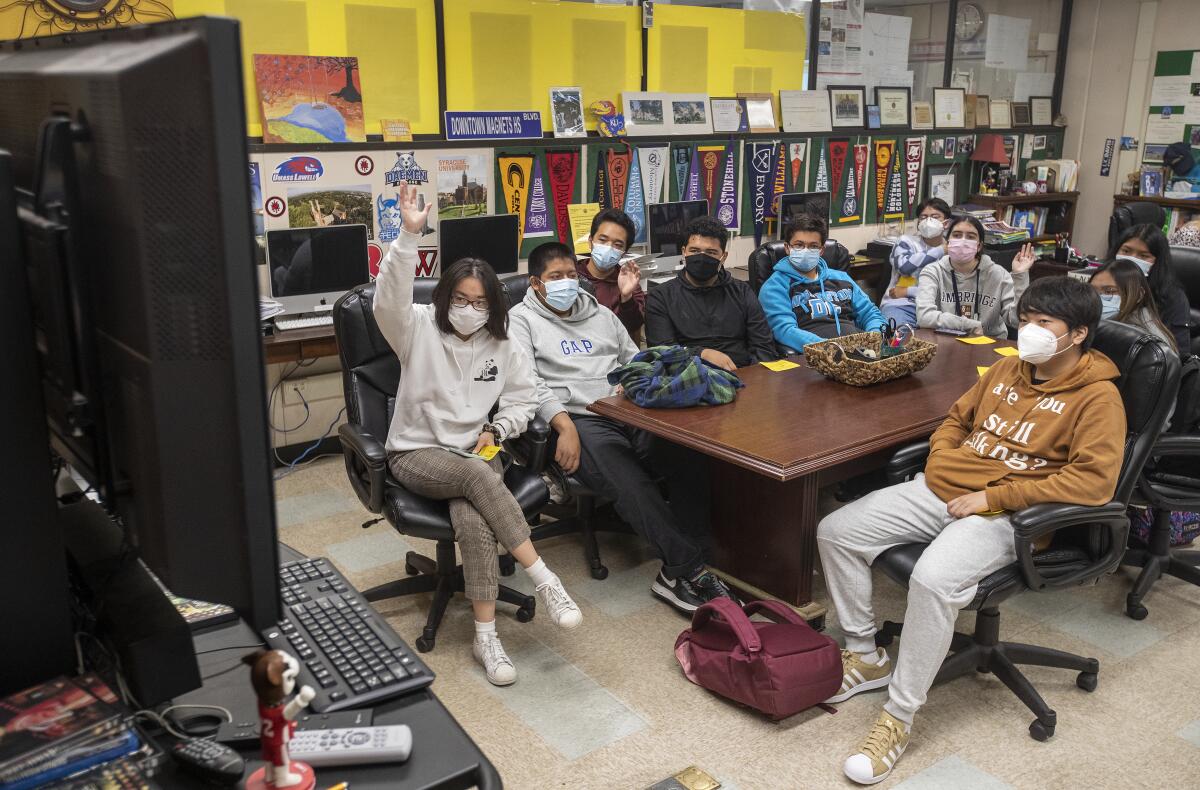Letters to the Editor: Don’t leave readers hanging — let us know where ‘unentitled’ kids go to college

- Share via
To the editor: Sacred are the high school college counselors and teachers who mentor their students during their lunch breaks, after school and on their Thanksgiving break such as Lynda McGee, the college counselor at Downtown Magnets. (“The unentitled kids: California’s new generation of star college applicants,” Dec. 29)
It is heartening to read that students are encouraged to apply to the “well-regarded but more attainable alternative” colleges in lieu of the hyper-competitive colleges. Each student featured in this article deserves a chance to step onto a college campus, wearing a sweatshirt emblazoned with the college’s name.
I feel as if this article abruptly stopped because we don’t have the ending yet. Where will these students end up? Let us know where Nick Saballos, Kiana Portillo, Kenji Horigome, Emily Cruz, Aleyia Willis and Kevin Hernandez end up going to college.
Tina Arrañaga Kubasek, Whittier
..
To the editor: I want to challenge the counselor’s derogatory comments about community colleges.
Local community colleges teach the same lower-division general education classes as any university. Community college teachers have only one responsibility, and that is to teach. Classes are small. Teachers know and care about their students.
Community colleges offer many support services to students, including help paying for books, food pantries, transit passes and short-term loans for personal emergencies. There are also on-campus work opportunities, scholarships, health services and counseling.
Also, community college students transferring to four-year institutions are typically more successful than the “native” students and graduate with higher grade point averages.
If these brilliant students stay close to home, they can manage their family responsibilities, spend less on lower-division classes and build confidence. Then, when they transfer to four-year schools, they will have the confidence and maturity to be academically successful.
Phyllis Specht, Pasadena





